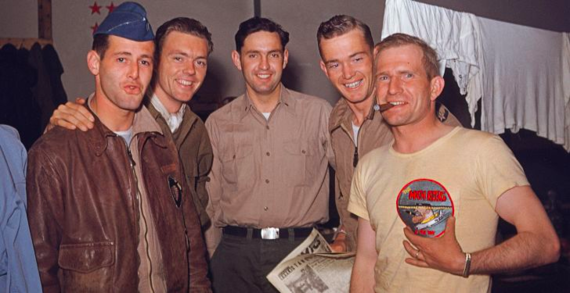"The city was divided," James Salter once wrote, "into those coming up and those coming down." This is in "American Express," which appeared in Dusk and Other Stories, published in 1988.
His editor was Jack Shoemaker, the publisher North Point Press, that legendary independent house of modest size and means and seemingly infinite vision, so it was there to the parsonage in the garden behind the de-consecrated church off Solano Avenue in Berkeley that Jim would arrive from Aspen or Sagaponack with the ingredients to make the most fantastic martinis for their Friday parties. Someone named that drink the Suicide Machine.
Jim Salter showed up and everything was suddenly enlivened in that ratty, half-painted outbuilding with its antique plumbing and faulty wiring. Yes, you'd think, we are in our ascendency.
Jack Shoemaker was his editor, mine too, this is how I met each of them. Jack and I fell in love under what resembled - still does - a Salter-like spell. In real life, it seems, you do sometimes get as lucky as people do in fiction.
When Dusk won the PEN/Faulkner that year Jim and Jack met in Washington, DC, for the ceremony and were sitting in the rooftop bar of the Hotel Washington under the wild flapping of the green canvas overhang when out of the night emerged a sudden and all-engulfing storm, torrential and moving sideways. The two, engrossed in what they were saying, simply didn't notice until lightning, wind, rain, thunder arrived simultaneously and moved in upon them under the awning, soaking their shoes and socks and trousers. I wasn't there, yet these events are as vivid to me as if I'd read them in a Salter story: a writer, his editor, looking out over the lights of an historic city come alive with possibility.
Educated at West Point, Jim had a military bearing and discipline. He was handsome, fit, erect, entirely self-possessed. Women fell easily in love with him, men did too. Strong minded, amused, profoundly humorous, but underspoken, he'd be telling a story in that scant way of his and I would laugh until I wept. "Certain people can tell a story," as Jim would say. "Others talk and your mind just wanders."
He had small bright eyes, a furrowed brow. He held his mouth and lips poised in what was almost a pucker as if on the verge of whispering. He squinted, peering out, like he was casting about for one fine detail.
At our wedding Jim proposed a toast that was, in fact, a caution, saying Jack might prove unfit for matrimony in that this was a man apparently incapable of profanity in nearly any imaginable circumstance.
"How're the kids?" I once asked him in my usual chummy way.
"Fine." Face never changing, he'd add: "As those things go."
A good story came, he always said, from the act of physical witness. Good writing is always aural, and here he'd touch his fingers to his temple. I think of a Salter story as being whispered in intimacy between the lips of one lover lying on the pillow only inches from the ear of another.
He believed in writing as vocation, that he had to go and see, hear and do, to travel. Indeed one of his chief struggles was he was so busy living -- eating, drinking, talking, seeing his many friends, flying off to ski, to climb the most sheer rock face of some distant mountain - that it was difficult to find the long years it took to write the careful books he made, sentence by perfect sentence. A meticulous craftsman, he had not a single linguistically sloppy bone in his being and years evolved into decades.
He loved Isaac Babel, those modernist quick cuts, that elision and economy, the comedic shock with which the mundane is ripped apart by violence. It was from Babel he may have learned to evaporate all that history will not bother with.
That Salter's work is imbued with heterosexuality is much remarked upon, his being a world in which men are men and these men are out and about being men together. Indeed, as in "American Express"- a story so perfect in form I use it to teach the novel - it's so often in the tension between men that the intimacy lies, girls and women acting as erotic conduit between them.
Salter loved the look of a beautiful woman, the light in her hair, her voice's joking undertow, the sensual way she'd move across the room going off to commit some treachery. He was a man, then, writing of manly things whose work has been criticized for being "beautiful." It's also said to be "Mandarin." I can never remember what this means, only that it was said by someone entirely forgettable.
The writing of James Salter was accomplished with such exquisite care it was an affront, of course, to the blunt force machismo of a certain brand of mid-twentieth century fiction maker - no names need be mentioned - whose work is stuck back rollicking in its own arrested psycho-sexual development, as if there was something even definingly adolescent about being a regular American dude.
But in James Salter - who flew fighter jets in Korea - the primal questions about what makes a man a man had simply been long before asked and answered. His characters are ardently sexual beings and, in this, he seemed - early on - singularly adult and fearless. Jim loved good food, good wine, a beautiful beach, the women who strolled upon that beach, his own young wife lying in the sun. Sitting on the sand at Sagaponack with Jack, he'd lift a hand in a characteristically elegant gesture saying, "Isn't this just terrific?"
In addition to the books and stories, Jim wrote the funniest, most relaxed and easy-going letters typed on the stationery he collected from the great hotels where he stayed and sounding exactly like he was right there at the table confiding in you.
Jack and I were at a concert in the Old First Church in San Francisco when we heard the news of James Salter's death last Saturday afternoon. Jack had last spoken to him the week before on his ninetieth birthday - he'd had a heart attack and, fittingly, had died at the gym. I wanted to go directly home, to keen and wail, to carry on excessively. But Jack who, like Jim, prefers to comport himself with dignity, prevailed upon me to stay and hear the music.
I loved the way Salter left out all that was unnecessary, loved how he, having come to the place in the story where there was no need to go on, would say, "And so forth," leaving the unsaid full of portent.
Jack and I drove home the long way from the city across the Golden Gate Bridge under a pulsing dome of violet. Venus, Jupiter, a sliver of moon, the three triangulated.
"A Salter sky," Jack said. "Isn't it terrific?""



